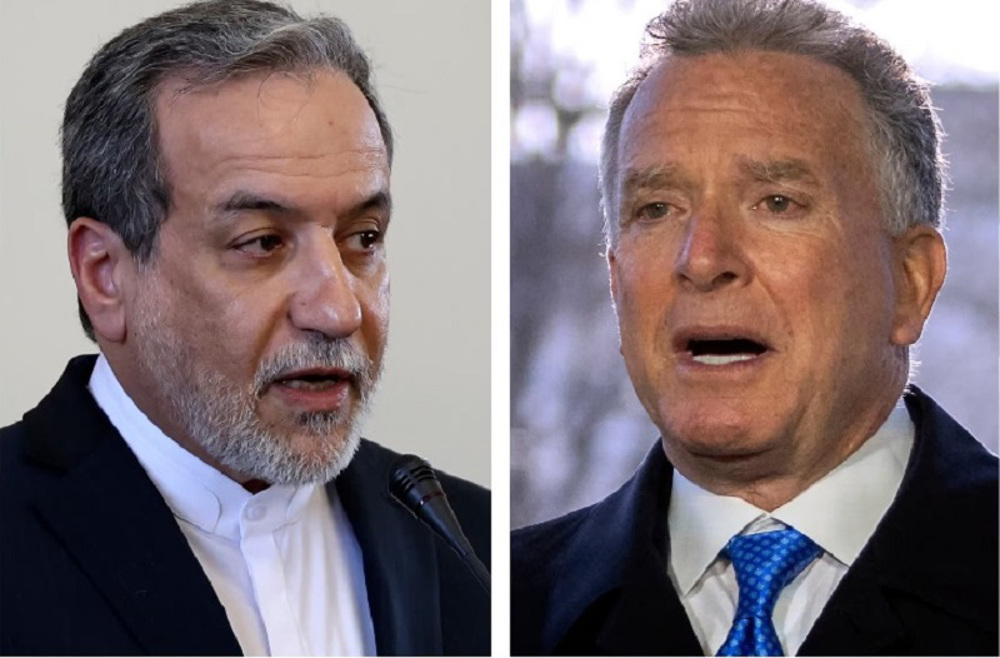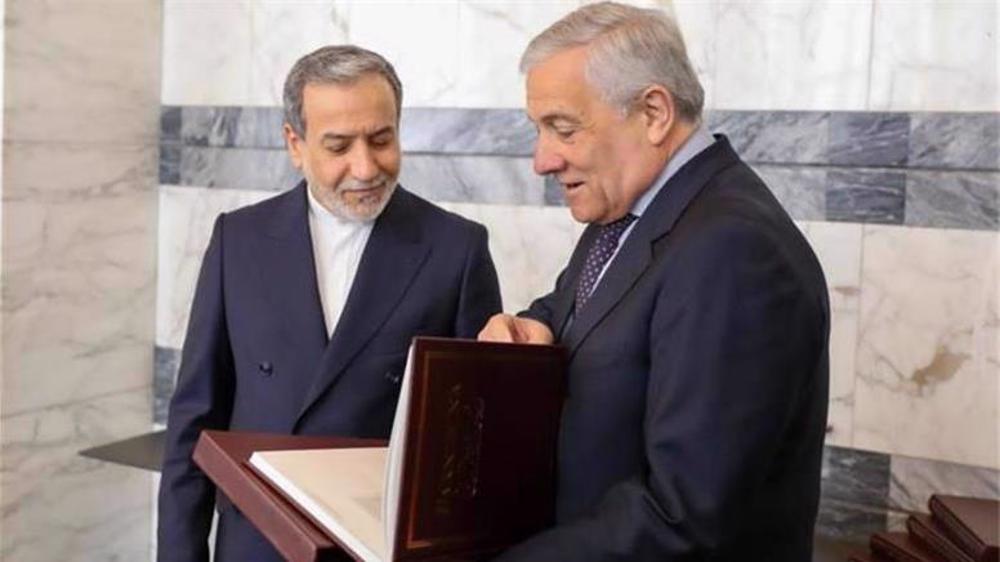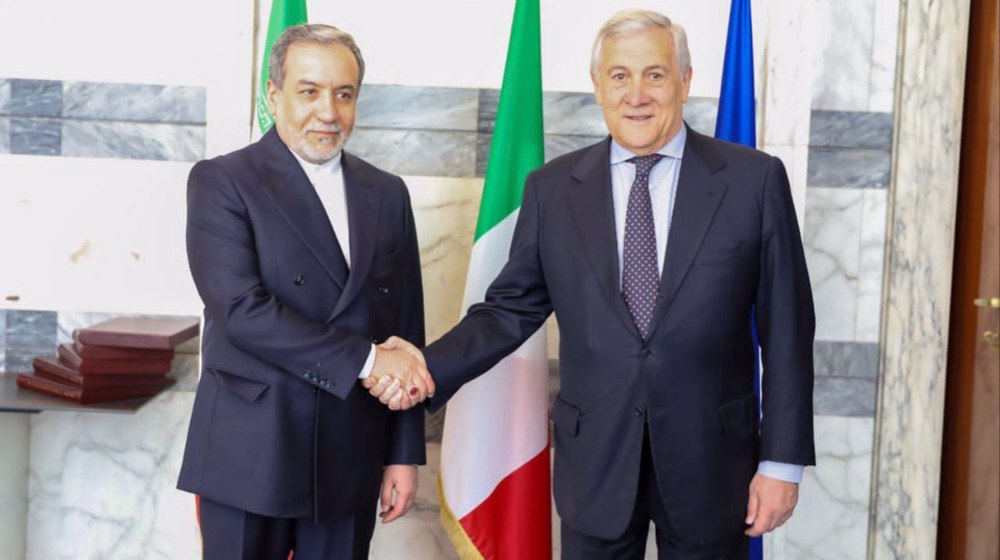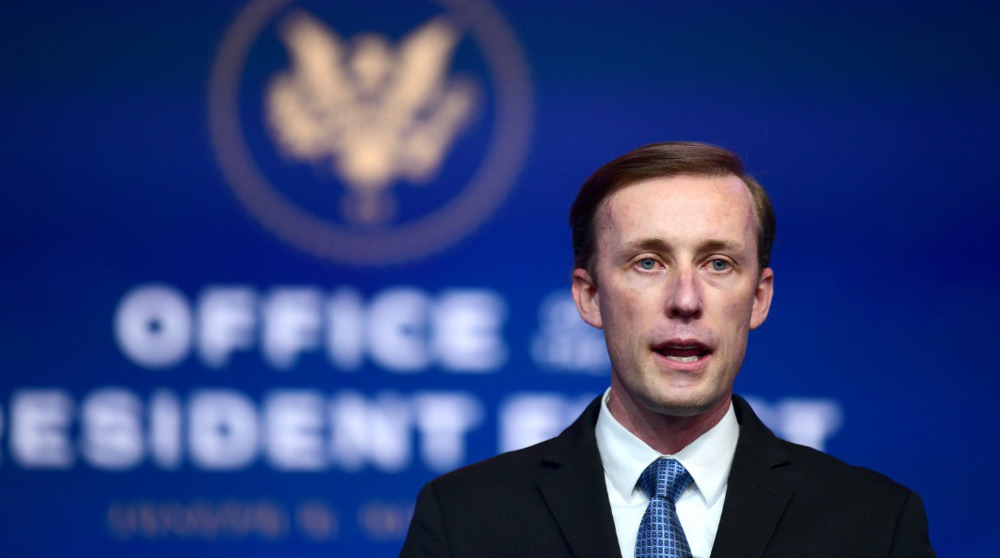US National Security Advisor: Still a 'fair distance to travel' in key issues in Iran deal
US National Security Advisor Jake Sullivan has said there remains “a fair distance to travel on some of the key issues” regarding the Iran nuclear agreement.
Sullivan made the remarks in an interview on Sunday after Abbas Araqchi, Iran’s top negotiator in Vienna talks which are aimed at reviving the 2015 landmark nuclear agreement between Tehran and world powers, said this week the participating delegations have made tangible progress in negotiations.
Sullivan said that the arrow has been pointed in the right direction “in terms of the work that's getting done in Vienna.”
“What I would say is that there is still a fair distance to travel on some of the key issues including on sanctions and on the nuclear commitments that Iran has to make,” Sullivan said during an appearance on ABC’s “This Week” on Sunday.
But he added that the Biden administration plans to keep its “eye on the ball” following the recent presidential election in Iran in which Seyyed Ebrahim Raeisi achieved about 62 percent of the votes with a turnout of 48.8 percent. He will succeed President Hassan Rouhani who has served two four-year terms in office.
“I think what we need to do in the United States is keep our eye on the ball," Sullivan said.
“Our paramount priority right now is to prevent Iran from getting a nuclear weapon. We believe that diplomacy is the best way to achieve that, rather than military conflict,” he added, repeating baseless US claims that Iran is pursuing a nuclear weapons program. Tehran has repeatedly rejected such accusations.
“We're going to negotiate in a clear-eyed, firm way with the Iranians to see if we can arrive at an outcome that puts their nuclear program in a box,” the US official said.
Sullivan was pressed during the interview about whether he thinks Raeisi’s election victory increases the chances of reaching a nuclear deal with Iran.
“The ultimate decision for whether or not to go back into the deal lies with Iran's Supreme Leader and he was the same person before this election as he is after the election,” he said.
“The question of which sanctions will be lifted is currently being negotiated in Vienna and I'm not going to conduct those negotiations in public,” he added.
In an interview with Al Jazeera television network, Iran’s top negotiator said on Thursday that “tangible progress has been made on various issues during Vienna talks.”
“We believe that we are closer to a [final] agreement than any time before, but there are still certain outstanding issues, which need more deliberation,” Araqchi said.
Iran’s top negotiator said all sides must take tough decisions, noting that Tehran has already made this difficult decision by remaining committed to the deal, which is officially known as the Joint Comprehensive Plan of Action (JCPOA), despite the withdrawal of the United States from it.
Former US president Donald Trump abandoned the deal and reimposed the anti-Iran sanctions that the JCPOA had lifted. He also placed additional sanctions on Iran under other pretexts not related to the nuclear case as part of the “maximum pressure” campaign.
Following a year of strategic patience, Iran resorted to its legal rights stipulated in Article 26 of the JCPOA, which grants a party the right to suspend its contractual commitments in case of non-compliance by other signatories, and suspend some of the restrictions imposed on its nuclear energy program.
Now, the new US administration says it wants to compensate for Trump’s mistake and rejoin the deal, but it is showing an overriding propensity for maintaining some of the sanctions as a tool of pressure.
Tehran insists that all sanctions should first be removed in a verifiable manner before the Islamic Republic reverses its remedial measures.

Indirect Iran-US talks proceed on 'constructive' note

‘Rome talks made progress on principles of ‘likely deal’; optimism warranted but with great caution’

Israel is the sole obstacle to nuke-free West Asia: Iran FM
Gaza civil defense rejects Israeli probe, calls medic killings 'summary executions'
Smotrich: Returning captives not Israel’s primary goal
Carnegie cancels Iran FM’s speech under ‘orchestrated pressure’ from Israel lobby: Report
Four Israeli ministers call for annexation of occupied West Bank
‘Collective punishment’ of Palestinians unjustifiable: UNRWA
Iran president, foreign minister offer condolences over death of Pope Francis
Obituary: Pope Francis, first Latin American pontiff, friend of Iran, critic of Gaza genocide
Remembering Saadi Shirazi, Persian poet whose message of universality endures









 This makes it easy to access the Press TV website
This makes it easy to access the Press TV website